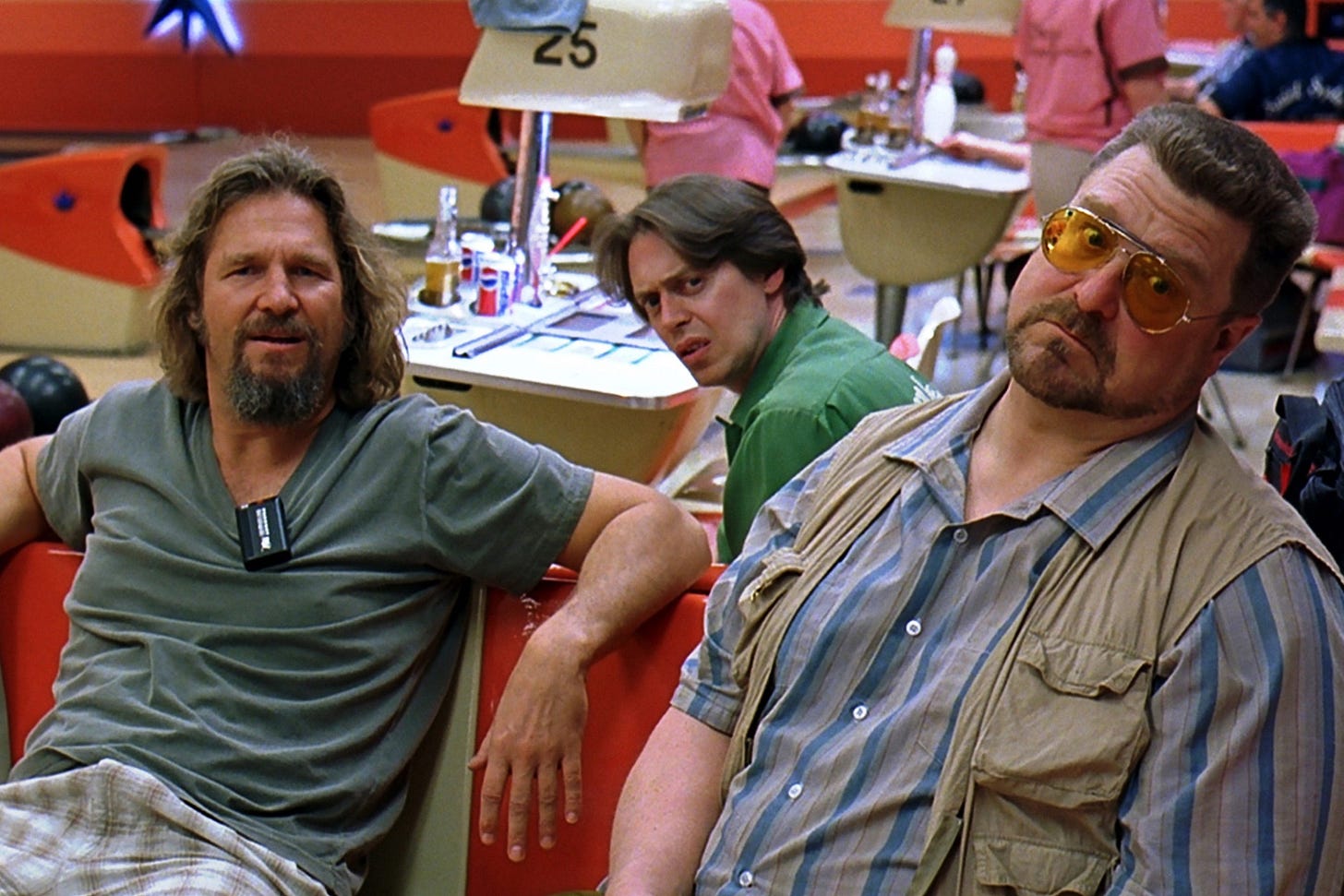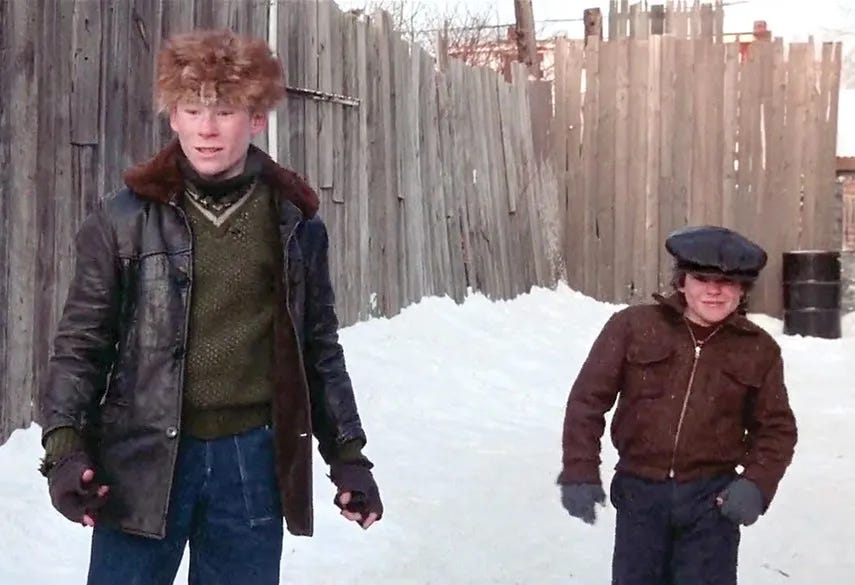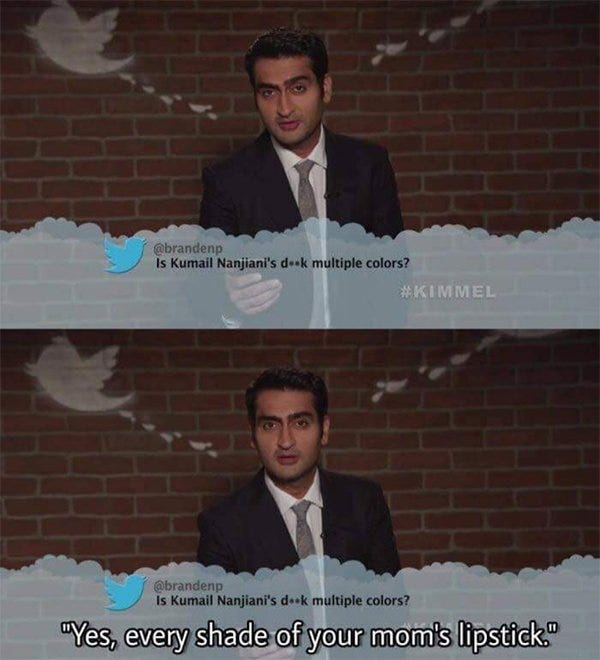Triforce Of Comedy: Why So Serious?
The Robot Gospel, Part 01011
Okay, so last time I posited the theory — theory — that (some people may believe) we’re all (more or less) equal in society today. And if — the theoretical if doing the heavy lifting here — we’re all equal, then jokes are just jokes and no one’s feeling should get hurt, right? We should be able to tell jokes about anything, and boundaries of comedy should always be pushed and explored, and if you aren’t laughing then you’re too sensitive and take everything too seriously.
Taking yourself too seriously is one of the things that I believe we should all take away from comedy — being able to laugh at ourselves.
An icy cold winter, and I was putting my then two year-old niece into the her carseat in the back of my car to take her somewhere. Puffy and bundled up and strapped in, I shut the back door of my car, take a step to open the driver door, and the next thing I see are my feet. Which was odd, because I was not looking down. This was some full-on cartoon shit, my legs flying up in the air, slipping on black ice, and me falling flat on my back and ass.
I couldn’t breathe — and not because the wind was knocked out of me, but because I was laughing so hard at myself. Yeah, it hurt, but the pain threshold I was able to withstand almost twenty years ago was a saving grace I most certainly do not have now.
I stood up, laughing, and my niece said: “Where’d you go?”
I could have felt embarrassed. My depression brain could have chastised me for not being careful and looking like a fool and potentially seriously injuring myself. But, I was able to laugh at myself and my feat of acrobatic slapstick.
If someone makes fun of the way Eddie Vedder sings, am I going to get pissed off? No. I understand where they’re coming from. I can see what is there in his voice to make a joke about. I am a huge fan of their music, but it doesn’t damage me that someone takes a swipe at them. I understand that not everyone likes what I like, and I am also not blind to some of the absurdities that are inherent to my various interests.
In my opinion1, comedy is a form of communication. One person says or does something funny, someone else laughs. The other person doesn’t have to respond with a joke of their own, their laughter was the response. Give and take.
Insulting or making fun of people who are your friends is a subversion of the expectation that you are supposed to be nice to the people you care about. But since you are friends, you both should understand that there is no intention to hurt feelings. Friends are equal, therefore there is no power imbalance. It’s a bowling ball being handed back and forth instead of being dropped off a balcony.
But being mean and making others the butt of a joke is about status. A power imbalance puts weight behind punchlines. Something that would normally not cause any damage to someone in your same weight class becomes devastating to lightweights2.
Pointing out power imbalances, or that someone is not in the same group as you, is something that humans do — we evolved to be tribal. It’s part of how our brains recognize potential threats in our environment. But making people feel bad just because they are a lower status than you — or you want them to believe they are — makes you a bully.
And sure, you might make other people laugh, but that laughter is either coming from other assholes, people who are shocked and uncomfortable with what was said, or people that are being complicit because they know that they just as easily could be the target and wish to try to avoid the crosshairs of ridicule.
People have always said that younger generations are weaker and not made of the same hardened mettle that The Olds are. That the reduction in bullying and talking to people about your feelings is somehow a bad thing. Possibly, enough parents got sick of seeing their kids get treated like shit, and figured out: Hey, if I actually raise my kids, maybe they won’t have to go through what I did growing up. And maybe we’ll get better people along the way.
It’s probably not solely the fault of comedians that sarcasm and irony became the Language Of The Internet, but there was definitely something in the air at that time that took root and festered into the Irony Poisoning we’re seeing today. Using something draped in the dead corpse of comedy to hide the hateful wolf underneath. And maybe a laugh is a laugh is a laugh, but there is a difference when people of the same status trade dozens, and when someone with power is raining down fire from higher ground.
I’ve heard of performers meeting their fans and getting barraged with insults and slurs. And sure, some of these people have maybe been on shows where they were among a group of people telling roast-style jokes. Or maybe they have a podcast or radio show where they’ll yell at or make fun of the other people they work with (or that work for them). Where they’re amongst a group of people that they know, and operate under the agreement that they are able to joke with each other in that way. But since that is how they are observed interacting with their friends, us people on the outside think it’s okay to make those same jokes with them — people that are complete strangers. That insults and mean jokes are how you make connections and show them that you are both in-the-know.
And when people are in-the-know, that means they can say horrible things that they don’t really mean and we can laugh at them being absurd, right? We know they aren’t really hateful... Or at least that’s what any normal person should understand, correct?
Like Trump saying that there were “good people on both sides” when talking about a group of people that was organized by Nazis to protest the removal of a Robert E Lee statue, and a group of people that were upset that there were Nazis there — it’s understood that no person in their right mind would mean that “Nazis are good people.”3

Of course, this is the same person that said that Proud Boys should “Stand back and stand by.” In fact, he’s said a bunch of crazy shit, but I’m here to talk about comedy... However, comedy has a history of people saying crazy shit — it’s sort of the whole thing. Saying crazy shit can make people laugh.
It can be subversive, and (everyone say it with me) comedy is about subverting expectations. But what if some of this stuff isn’t subversive and it’s reinforcing the status quo? It’s not speaking truth to power, but rather speaking The Power’s version of “the truth”?
What if we get to the point when someone is spouting so much shit, we don’t know what to laugh at and what to take seriously?
Let’s come back to that, next time.
-bcp
If you’ve got three hours to spare and the Venn Diagram of your interests overlap with philosophy, gender studies, romance novels, radical feminism, and the Twilight books, then have I got the video for you!
Natalie Wynn makes videos that are extremely my shit, and I somehow missed this one that came out in the Spring. I watched it in chunks over the past week, and it really got me thinking about all sorts of things in my life that I now feel like I have a better understanding of.
I worked at The Bookstore back when Twilight and 50 Shades gripped the collective bookshelves and loins of readers across the country. And while I’ve never read any of those books, I have absorbed enough of the fallout by being at ground zero, that even though this video isn’t just a fansplain exploration of the books, I understood enough of the inside jokes to make my wife wonder what the hell I was watching.
And remember, this is all my opinion. I don’t claim to be the arbiter of comedy and what people should and shouldn’t laugh at. These are just what I think about comedy and the kind of comedy I like.
The Spider-Man maxim of: “With great power must also come great responsibility” is something that I could go on and on and on about, but I’ll save it for my theoretical second appearance on The Dork Forest.
Parker Molloy wrote about the Snopes dipshittery over on her Substack, because some people think that facts can exist in a vacuum outside the atmosphere of context. The “normal person” link in the previous paragraph leads to a YouTube explanation of much of the same facts.







